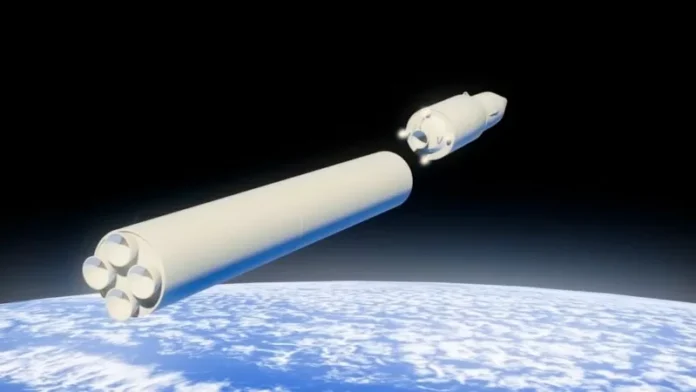Washington — The United States military and intelligence agencies are sounding the alarm about Russia and China’s increasing efforts to develop space-based weapons. This decision could have far-reaching implications for America’s ability to defend itself, as well as for global security.
According to Lieutenant General Jeff Kruse, director of the Defense Intelligence Agency, both Russia and China view the use of space as a critical capability in deterring or compelling behaviors, even before the outbreak of conflict. This growing intent to use counterspace capabilities is a cause for concern and the U.S. must be prepared to defend itself.
The concerns about space safety were further heightened when House Intelligence Committee Chairman Mike Turner called for the declassification of all information related to Russia’s new anti-satellite capability involving nuclear weapons. Turner has also warned that the U.S. is “sleepwalking” into a disaster, as Russia is on the verge of being able to detonate a nuclear weapon in space, which would have devastating consequences for the U.S. military and economy.
The White House has responded by stating that U.S. officials have been aware of Russia’s plans and that they have not yet deployed a space-based nuclear capability. However, Kruse reaffirmed this stance with added caution, stating that Russia has been working towards this capability for almost a decade and is getting dangerously close to achieving it.
Kruse also warned that Russia has no intention of slowing down their efforts and will continue to progress unless there are repercussions. This sentiment was echoed by General Stephen Whiting, the commander of U.S. Space Command, who described China’s actions as building a “kill web” in space.
China’s rapid expansion into the space domain is also a cause for concern, with Kruse stating that they are now in multiple orbits that they were not in before. China has heavily invested in directed energy weapons, electronic warfare capabilities, and anti-satellite technology. They also have a clear space doctrine and strategy, and actively train and exercise the use of space and counterspace capabilities.
Despite these alarming developments, both Russia and China have denied U.S. accusations and criticisms of their space policies. Russian Deputy Foreign Minister Sergei Ryabkov dismissed the concerns as “fake news,” while the Chinese Embassy in Washington rejected any suggestion of belligerent actions in space. They stated that China advocates for the peaceful use of outer space and opposes weaponizing it or engaging in an arms race.
However, the Defense Intelligence Agency’s Kruse suggested that China’s actions do not align with their public stance. He warned that China’s rapid expansion and investment in space capabilities are just as concerning as Russia’s. General Whiting also raised concerns about the lack of clear military communication with China regarding space safety.
In light of these developments, the U.S. must take action to protect its interests and ensure the safety of space. This includes investing in advanced space technologies and capabilities, as well as establishing clear communication channels with other countries to prevent misunderstandings and unintended actions.
The U.S. must also work towards building a global consensus on the peaceful use of outer space and preventing the weaponization of this critical domain. As the world becomes increasingly reliant on space for communication, navigation, and other essential services, it is crucial to ensure its safety and security.
In conclusion, the U.S. must remain vigilant and prepared to defend itself against the growing threat of space-based weapons from Russia and China. It is essential to work towards a peaceful and secure space environment for the benefit of all nations. As Lieutenant General Kruse stated, “We just need to be ready.”

